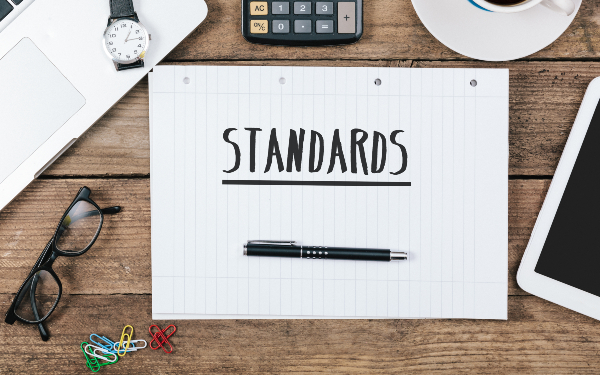
Social Work England has issued guidance for higher education institutions (HEIs) on implementing new standards for approved mental health professional (AMHP) qualifying courses.
The standards will replace the current regime, which Social Work England inherited from the Health and Care Professions Council, in summer 2025, from when the regulator will use them to approve new courses and reapprove existing ones.
They cover admissions, course management, curriculum, practice placements, supporting students and assessment, and are designed to ensure that practitioners can meet the expectations of AMHPs set out in regulations under the Mental Health Act 1983 (see box), on qualification.
Competencies expected of AMHPs
Schedule 2 of the Mental Health (Approved Mental Health Professionals) (Approval) (England) Regulations 2008 sets out five competencies that local authorities must take into account in determining whether to approve a person as an AMHP:
- Applying values to the AMHP role, including the abilities to identify, challenge and, where possible, redress discrimination and inequality and to promote the rights, dignity and self-determination of patients consistent with their own needs and wishes.
- Knowledge of the legal and policy framework, including the Mental Health Act 1983 and its code of practice, and relevant elements of other legislation, along with an understanding of, and sensitivity to, race and culture in the application of the law.
- Knowledge of mental disorders, including an understanding of the social perspective on mental health needs and the implications of a range of treatments and interventions for patients and their relatives and carers.
- Skills in working in partnership, including communicating appropriately with, and establishing effective relationships with. patients, relatives and carers, and articulating the role of the AMHP in contributing to effective inter-agency and inter-professional working.
- Skills in making and communicating informed decisions, including compiling and completing statutory documentation, providing reasoned and clear verbal and written reports to promote effective, accountable and independent decision making and presenting cases at legal hearings.
Social Work England finalised the course standards in November 2022, following a consultation, and has now set out guidance for HEIs on how to put them into practice.
Its publication comes with the AMHP workforce 35% short of what is required to provide a 24-hour service, which councils are expected to do under the Mental Health Act 1983 code of practice.
Ensuring courses are accessible to all professions
Standards on admissions include ensuring applicants have the potential to acquire and demonstrate the AMHP competencies, as well as the required academic standards for the course (standard 1.1), and “a robust level of legal literacy in appropriate legislative and policy areas” (1.5).
Social workers account for about 95% of AMHPs in England, with nurses making up most of the remainder (4%) and occupational therapists 1%, with very few chartered psychologists performing the role.
Standard 1.9 states that admissions processes should that candidates from any eligible profession can demonstrate their suitability to join the course.
The guidance on the standards states that providers should monitor and assess how accessible the course is for students across all the eligible professions, including by assessing student and applicant feedback and whether or how teaching methods present barriers to particular professional groups.
Having approved AMHPs on staff
Standard 2.4 requires courses to ensure that the person with overall professional responsibility for the programme is a relevant qualified professional with appropriate experience.
The guidance states that this should be a qualified and approved AMHP. Their responsibilities should include providing expert professional advice on all aspects of the course and on students’ suitability, keeping up to date with practice and policy developments and engaging with other AMHPs, employers and placement providers to ensure the course reflects regional priorities.
In relation to standard 2.5 – ensuring there is adequate provision of appropriately qualified and experienced staff, with relevant specialist subject knowledge and expertise – the guidance states courses should have “sufficient numbers of qualified and approved AMHPs”.
This is to “ensure that students learn about professional practice from those who have relevant and current experience of delivering mental health services”.
Teaching the value base
Standard 3.2 states that the content, structure and delivery of the training should be in accordance with relevant guidance and frameworks and designed to enable students to demonstrate that they have the necessary knowledge and skills.
According to Social Work England’s guidance, course providers should have documentation that shows how their curriculum content and learning outcomes are mapped to the AMHP competencies set out in regulations (see box above).
HEIs should also ensure that “the values of human rights, social justice and social perspectives are embedded throughout the teaching and assessment of the programme”, and that trainees are taught about the “value base” of a practising AMHP.
This may include social perspectives of mental health, cultural competence and culturally appropriate care, principles of co-production, participation and empowerment and anti-racist, anti-discriminatory and anti-oppressive practice.
What placements should provide
Providers should ensure that the number, duration and range of practice placements is appropriate to support the delivery of the course and the achievement of the learning outcomes, under standard 4.2.
The guidance states that Social Work England does not require a minimum number of placement days.
It adds that HEIs should, among other things, be able to demonstrate how placements provide trainees with opportunities to apply mental health legislation and related codes in practice and learn how to plan, negotiate and manage compulsory admission to hospital, or alternatives to compulsory admission, or arrangements for supervised community treatment.
Supporting students to raise concerns
Standard 5.7 states that courses should have policies and processes in place for students to “challenge unsafe behaviours and cultures and organisational wrongdoing, and report concerns openly and safely without fear of adverse consequences”.
Social Work England’s guidance states that challenging unsafe practice is integral to AMHP practice, as set out in regulations, however, some students may find it difficult to do this.
It adds that educators, practice educators and placement supervisors “should be aware of the need to support and encourage students to take appropriate action if necessary”. This should include informing them about processes for raising concerns, but may also involve providing training on raising concerns and offering dedicated reporting methods for students to do so.
Assessing students
Under standard 6.1, courses should be able to demonstrate that “assessments are robust, fair and consistent, and that those who successfully complete the course have developed the [necessary] knowledge and skills” to meet the AMHP competencies.
The guidance states that, in developing their assessment strategies, HEIs should consider issues including the assessment burden on students, how many times they should be allowed to resit assessments, the maximum time permitted to complete the course and options available for students who are at risk of not progressing.
You can access the full guidance here.
Leads welcome standards
The standards and guidance were welcomed by the AMHP Leads Network, though the group, which represents service managers, said that there should have been more prescriptive in certain areas.
“We particularly appreciate the clarity of candidate assessment being against the statutory competencies contained in the regulations, which we believe are fundamental to good practice, as well as being contained in legislation,” said network co-chairs Kirsten Bingham and Christina Cheney.
They were also supportive of the emphasis on partnership working between HEIs and employers in relation to the standard on course management, saying this was key to supporting recruitment and retention of both AMHPs and academic staff.
‘More prescription needed on anti-racism and prevention’
However, they said they would have liked to have seen the standards “mandate the inclusion of anti-racism and allyship training” on courses to help drive change in relation to racial inequalities in the mental health system.
While the guidance states that training on anti-racism may be included on courses, it is not a requirement under the standards.
Bingham and Cheney also said they would have liked to have seen references to AMHPs’ role in preventing detention under the act, along with clearer guidelines on expectations of practice placements, such as duration, task and location.
This “would also have been beneficial to developing consistent training around the country that produces AMHPs who are capable and confident in facilitating alternatives to hospitalisation for as many people as possible”, they said.
Standards ‘a significant step forward’
The standards and guidance were backed by the University of Hertfordshire, which runs a twice-yearly AMHP course.
Its course leader, John Paul Anastasiadis, said: “I think [the standards and guidance] are a significant step forward and will enhance the quality and effectiveness of AMHP training. They are also not too prescriptive, allowing providers to develop tailored educational experiences.
“It’s promoting a higher standard for future AMHPs and a higher quality of candidates coming through the door to train as AMHPs.”
Disappointment over guidance content
However, Nick Perry, an AMHP and visiting lecturer at Brighton University, said he was disappointed that there was no reference in the guidance to students developing therapeutic communication skills through course curricula.
In 2022, Perry co-published an article, with academic David Watson, in the Journal of Ethics & Social Welfare, which argued that learning solution-focused practice techniques could assist AMHPs to deliver least restrictive (and least oppressive) outcomes and experiences.
He subsequently engaged with Social Work England, calling on the regulator to include reference to these techniques in the guidance.
“Those of us that are passionate about properly equipping AMHPs for least restrictive interventions can only re-double our efforts to expand the evidence base, and ensure that there is no alternative for the regulator but to include this kind of emphasis when the review of their guidance next comes around,” he added.





 Bournemouth, Christchurch and Poole
Bournemouth, Christchurch and Poole  Hampshire County Council
Hampshire County Council  Lincolnshire County Council
Lincolnshire County Council  Norfolk County Council
Norfolk County Council  Northamptonshire Children’s Trust
Northamptonshire Children’s Trust  South Gloucestershire Council
South Gloucestershire Council  Wiltshire Council
Wiltshire Council  Wokingham Borough Council
Wokingham Borough Council  Children and young people with SEND are ‘valued and prioritised’ in Wiltshire, find inspectors
Children and young people with SEND are ‘valued and prioritised’ in Wiltshire, find inspectors  How specialist refugee teams benefit young people and social workers
How specialist refugee teams benefit young people and social workers  Podcast: returning to social work after becoming a first-time parent
Podcast: returning to social work after becoming a first-time parent  Podcast: would you work for an inadequate-rated service?
Podcast: would you work for an inadequate-rated service?  Family help: one local authority’s experience of the model
Family help: one local authority’s experience of the model  Workforce Insights – showcasing a selection of the sector’s top recruiters
Workforce Insights – showcasing a selection of the sector’s top recruiters 

 Facebook
Facebook X
X LinkedIn
LinkedIn Instagram
Instagram
Comments are closed.